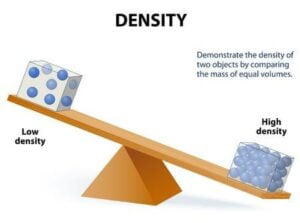Oil Derivatives: A Comprehensive Guide to Density Specifications
Understanding Oil Derivatives: A Comprehensive Guide to Density Specifications Introduction:
When it comes to the world of oil refining, understanding the specifications of oil derivatives is crucial for both industry professionals and enthusiasts alike.
Among the essential parameters to consider is density, as it plays a significant role in determining the quality and applicability of various oil products. In this article, we will delve into the concept of density, its significance in oil refining, and how it affects the performance and applications of different oil derivatives.
1. What is Density? Density is a fundamental physical property that quantifies the mass of a substance per unit volume. In the context of oil derivatives, density provides essential information about the compactness or heaviness of a particular product.
It is commonly expressed in kilograms per cubic meter (kg/m³) or in API gravity, a unit of measurement inversely related to density. 2. Importance of Density in Oil Refining: Density serves as a key indicator of the composition and quality of oil derivatives.
Refineries utilize density measurements to determine the purity, consistency, and market value of different products. By understanding the density specifications, refiners can effectively manage their processes and meet the required standards for specific applications.
3. Density Specifications for Common Oil Derivatives: a. Gasoline: Gasoline is a widely used petroleum product. Density specifications for gasoline typically range from 720 to 775 kg/m³ or 40 to 50 API gravity.
These specifications ensure optimal performance, fuel efficiency, and compliance with environmental regulations. b. Diesel Fuel: Diesel fuels have a higher density compared to gasoline. Standard density specifications for diesel fuel fall within the range of 830 to 860 kg/m³ or 25 to 40 API gravity.
The density of diesel fuel affects its energy content, combustion characteristics, and emissions. c. Jet Fuel: Jet fuels are specifically formulated for aviation purposes. Jet A and Jet A-1 fuels have density specifications ranging from 775 to 840 kg/m³ or 30 to 45 API gravity.
The density of jet fuel is critical for efficient combustion and safe operation of aircraft engines. d. Lubricating Oils: Lubricating oils, such as engine oils and industrial lubricants, have varying density specifications depending on their intended applications.
Generally, lubricating oils have densities ranging from 850 to 950 kg/m³ or 10 to 25 API gravity. The density of these oils affects their viscosity, thermal stability, and ability to reduce friction and wear.
4. Factors Affecting Density: Several factors can influence the density of oil derivatives, including the composition of hydrocarbon molecules, temperature, pressure, and impurities. Refineries employ sophisticated techniques and instruments to measure and control density accurately during the refining process.
Conclusion: Density specifications are a crucial aspect of oil refining and play a vital role in determining the quality, performance, and applicability of various oil derivatives.
Understanding the density requirements for different products enables refineries to produce fuels and lubricants that meet industry standards and customer expectations. By focusing on density, refiners can ensure optimal performance, environmental compliance, and safe operation across a wide range of applications.

NTEK Trading Company emerged in the 2000s as a thriving entity, offering exceptional business services in the field of production and export of Oil Derivatives, and boasting a team of accomplished managers.
With a skilled workforce, access to cutting-edge information, and strategic collaborations across multiple countries, NTEK has sustained a trajectory of continuous growth. Drawing from its vast experience in various industries, encompassing trade, production, and services, NTEK has garnered noteworthy accomplishments, serving our country and achieving excellence.
Leveraging its full potential, the company actively engages in diverse commercial activities, including the import and export of petroleum products from Iran, Iraq, Russia, Turkmenistan, and Azerbaijan.
NTEK Co, an Iranian company, aspires to establish a robust global presence, capitalizing on the knowledge gained from previous years and its dedicated and capable team. Presently, our focus lies in fostering collaboration among large importing companies, facilitating the exchange of information and technology, and creating a business consortium to address mutual needs.
We extend an invitation to join us in this endeavor, aiming to enhance our collective achievements for years to come. Our commitment is to earn your trust through our unwavering dedication, as it remains our primary duty and objective.
NTEK.CO currently maintains offices in Iran, Oman, and Turkey, while also collaborating with offices in Dubai, Malaysia, and Iraq.
See our products.




